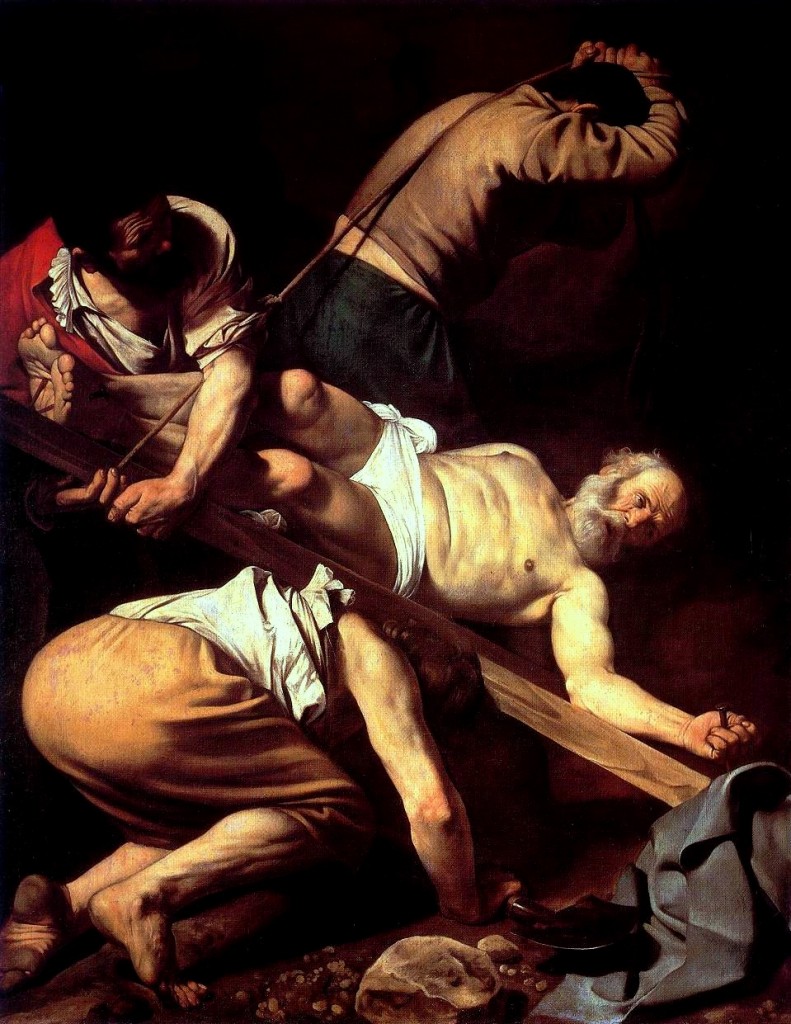Yesterday I read the following poem on death entitled “Moriturus” by Edna St. Vincent Millay.
If I could have
Two things in one:
The peace of the grave,
And the light of the sun;My hands across
My thin breast-bone,
But aware of the moss
Invading the stone,Aware of the flight
Of the golden flicker
With his wing to the light;
To hear him nickerAnd drum with his bill
On the rotted window;
Snug and still
On a gray pillowDeep in the clay
Where digging is hard,
Out of the way,–
The blue shardOf a broken platter–
If I might be
Insensate matter
With sensate meSitting within,
Harking and prying,
I might begin
To dicker with dying.For the body at best
Is a bundle of aches,
Longing for rest;
It cries when it wakes“Alas, ‘tis light!”
At set of sun
“Alas, ‘tis night,
And nothing done!”Death, however,
Is a spongy wall,
Is a sticky river,
Is nothing at all.Summon the weeper,
Wail and sing;
Call him Reaper,
Angel, King;Call him Evil
Drunk to the lees,
Monster, Devil–
He is less than these.Call him Thief,
The Maggot in the Cheese,
The Canker in the Leaf–
He is less than these.Dusk without sound,
Where the spirit by pain
Uncoiled, is wound
To spring again;The mind enmeshed
Laid straight in repose,
And the body refreshed
By feeding the rose–These are but visions;
These would be
The grave’s derisions,
Could the grave see.Here is the wish
Of one that died
Like a beached fish
On the ebb of the tide:That he might wait
Till the tide came back,
To see if a crate,
Or a bottle, or a blackBoot, or an oar,
Or an orange peel
Be washed ashore . . . .
About his heelThe sand slips;
The last he hears
From the world’s lips
Is the sand in his ears.What thing is little?–
The aphis hid
In a house of spittle?
The hinge of the lidOf the spider’s eye
At the spider’s birth?
“Greater am I
By the earth’s girth“Than Mighty Death!”
All creatures cry
That can summon breath–
And speak no lie.For he is nothing;
He is less
Than Echo answering
“Nothingness!”–Less than the heat
Of the furthest star
To the ripening wheat;
Less by far,When all the lipping
Is said and sung,
Than the sweat dripping
From a dog’s tongue.This being so,
And I being such,
I would liever go
On a cripple’s crutch,Lopped and felled;
Liever be dependent
On a chair propelled
By a surly attendantWith a foul breath,
And be spooned my food,
Than go with Death
Where nothing good,Not even the thrust
Of the summer gnat,
Consoles the dust
For being that.Needy, lonely,
Stitched by pain,
Left with only
The drip of the rainOut of all I had;
The books of the wise,
Badly read
By other eyes,Lewdly bawled
At my closing ear;
Hated, called
A lingerer here–Withstanding Death
Till Life be gone,
I shall treasure my breath,
I shall linger on.I shall bolt my door
With a bolt and a cable;
I shall block my door
With a bureau and table;With all my might
My door shall be barred.
I shall put up a fight,
I shall take it hard.With his hand on my mouth
He shall drag me forth,
Shrieking to the south
And clutching at the north.
Two things stand in this poem. One is that sin and death are nothing; they have no substance of themselves — something which is affirmed in traditional Christianity. All creation is essentially good, sin and death can only exist as corruptions i.e. they are entirely dependent on that good thing. Like a chip in a marble statue, it only has existence as a deficiency and imperfection. Death is not a “monster” or “devil”; as the poem it is not some thing but only the lack of things. It is quite literally nothing.
The second thing that stands out, which I think is need of some correction in light of Christian revelation, is our reaction to the death. In the poem, we are supposed to be emboldened by death not being a thing. It calls us to embrace life. All of this so far is good and true. Christ has conquered death; we have no reason to be afraid of it. The last stanza where the reader is supposed resist this nothing “shrieking” and “clutching” is off. If we have the confidence from 1) death is nothing and 2) Christ has conquered it, why should we go kicking and screaming to death?
God willing, a Christian is already dead long before he physically dies. In the sacrament of baptism, he puts the old man, a slave to sin and the passions, to death. In that mystery we are joined with Christ in his own death. It is a trade-off; he joins Christ in his death but is also resurrected with Him. But a Christian must die to the world and sin if he hopes to be resurrected.
In other words, corpses don’t shriek and clutch. Christians are called to be dead to the world so that they may live in Christ and in His Kingdom. They shouldn’t be panicked at death but joyous in anticipation of the Great Banquet. So just die already!





Comment by 6ix9ine on November 1, 2019 at 6:16 pm
Death, what is it? Is it good for catholics, or bad? It is both. On earth, we may be sad when someone dies, but we don’t know what is really happening. The soul goes into Heaven and rejoices and waits. So, in heaven we are happy that their loved one made it there and is not sad they did, everyone in Heaven is peaceful and loving and happy. People who don’t, violent and wicked and mad at what they have.